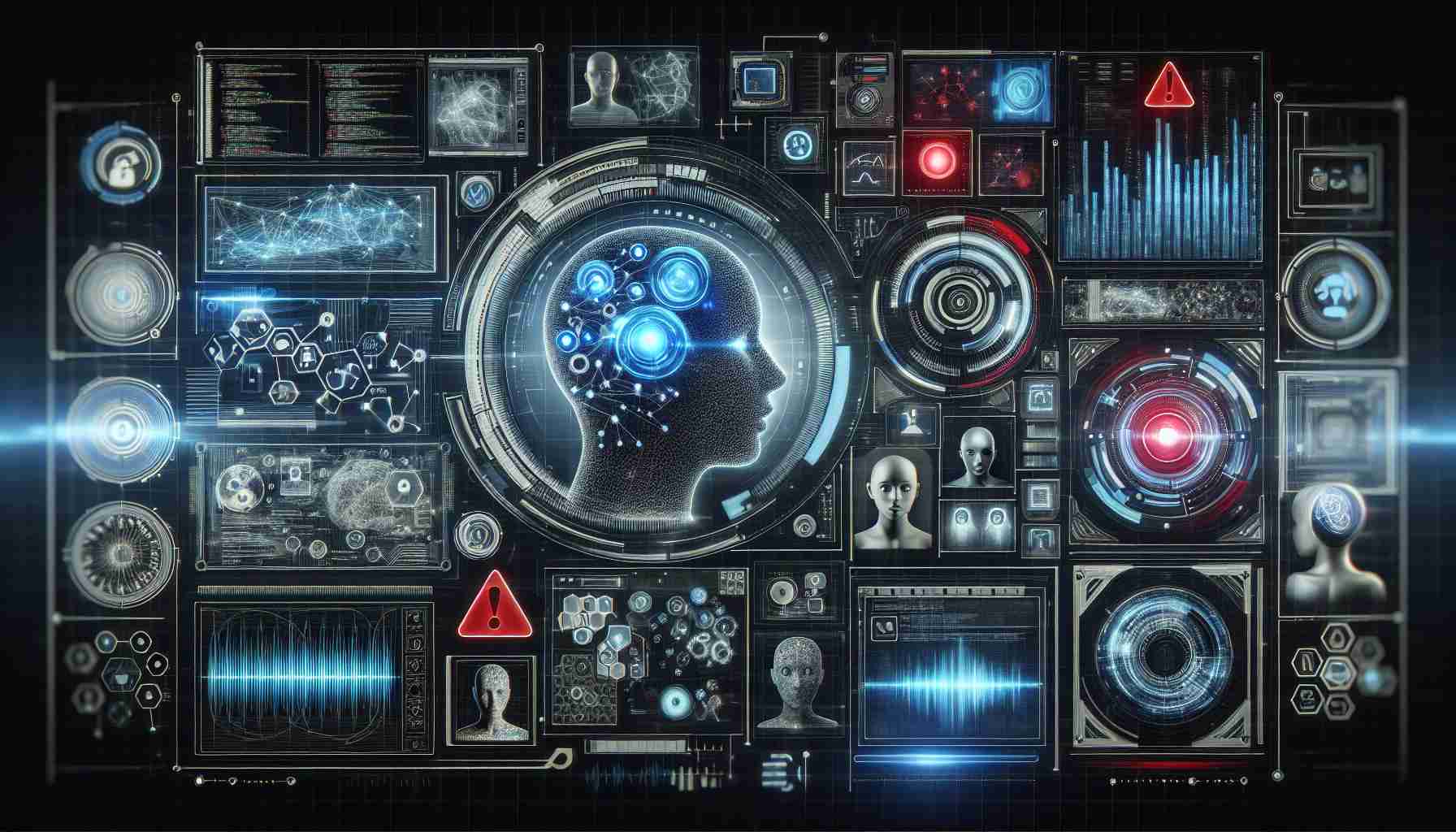Recent developments in AI technology have made it easier than ever to create digitally altered, highly realistic pornographic images, raising concerns about the need for protective legislation. Deepfake pornography, which involves the use of AI to manipulate images, poses serious threats to individuals, often targeting women and teenage girls.
While Alberta passed the Protecting Victims of Non-Consensual Distribution of Intimate Images Act in 2017, experts argue that the legislation falls short in addressing the issue of digitally altered images. Kristine Cassie, CEO of the Chinook Sexual Assault Centre, emphasizes the urgent need to expand the act to include instances of deepfake pornography.
The impact of deepfake pornography extends far beyond privacy concerns. Victims can experience distress, anxiety, and even suicidal ideation as a result of the non-consensual creation and distribution of these altered images. Cassie suggests that social media platforms should also be held accountable for detecting and removing such images, as well as addressing the issue of individuals hiding behind pseudonyms.
While eight provinces in Canada have enacted intimate image laws, only half of them specifically refer to altered images. The Liberal government has indicated that upcoming legislation on online harms will address sexually explicit deepfakes and establish new rules for regulating online content.
Geoffrey Rockwell, the Canadian Institute for Advanced Research (CIFAR) AI chair, highlights the accessibility and affordability of AI technology, which attracts individuals with malicious intent. He expresses concern over the impact of deepfake pornography on teenage girls who may be traumatized by the explicit and degrading representations being shared among their peers.
Benjamin Tan, a software engineering assistant professor, emphasizes the importance of education and awareness in combating this form of harassment. He encourages individuals to be mindful of what they post online and to scrutinize the content they consume. Tan stresses the need for higher standards when it comes to sharing and consuming digital content to mitigate the spread of deepfake pornography.
While education and awareness play a crucial role, experts stress the need for comprehensive legislation and regulatory solutions to combat deepfake pornography effectively. As of now, the Ministry of Justice in Alberta has no plans to introduce new intimate images legislation.
It is essential to address the rising concerns regarding deepfake pornography and provide adequate protection to potential victims.
FAQs on Deepfake Pornography and Protective Legislation
Q: What is deepfake pornography?
A: Deepfake pornography refers to the use of AI technology to manipulate or create highly realistic pornographic images or videos by swapping the faces of individuals onto existing adult content.
Q: What are the concerns associated with deepfake pornography?
A: Deepfake pornography raises concerns about non-consensual creation and distribution of sexually explicit altered images, targeting women and teenage girls. It can lead to distress, anxiety, and even suicidal ideation among victims.
Q: Has any legislation been passed to address deepfake pornography?
A: Alberta passed the Protecting Victims of Non-Consensual Distribution of Intimate Images Act in 2017, but experts argue that the legislation falls short in dealing with digitally altered images. There is an urgent need to expand the act to include instances of deepfake pornography.
Q: Should social media platforms be held accountable for deepfake images?
A: Yes, according to Kristine Cassie from the Chinook Sexual Assault Centre. She suggests that social media platforms should be responsible for detecting, removing, and preventing the spread of deepfake images. She also emphasizes the issue of individuals hiding behind pseudonyms.
Q: How many Canadian provinces have enacted intimate image laws?
A: Eight provinces in Canada have enacted intimate image laws, but only half of them specifically refer to altered images.
Q: Will upcoming legislation in Canada address deepfake pornography?
A: The Liberal government in Canada has indicated that upcoming legislation on online harms will address sexually explicit deepfakes and establish new rules for regulating online content.
Q: What is the impact of deepfake pornography on teenage girls?
A: Geoffrey Rockwell, an AI chair, highlights that deepfake pornography can traumatize teenage girls due to explicit and degrading representations that are shared among their peers.
Q: How can individuals combat deepfake pornography?
A: Benjamin Tan, a software engineering assistant professor, emphasizes the importance of education and awareness. Individuals should be mindful of what they post online and scrutinize the content they consume. Higher standards for sharing and consuming digital content can help mitigate the spread of deepfake pornography.
Q: Are comprehensive legislation and regulatory solutions necessary to combat deepfake pornography?
A: Yes, experts stress the need for comprehensive legislation and regulatory solutions to effectively mitigate deepfake pornography. Education and awareness alone are not enough to tackle the issue.
Q: Do the Ministry of Justice in Alberta have plans to introduce new intimate images legislation?
A: As of now, the Ministry of Justice in Alberta has no plans to introduce new intimate images legislation.
Definitions of Key Terms:
– Deepfake pornography: The use of AI technology to manipulate or create highly realistic pornographic images or videos by swapping the faces of individuals onto existing adult content.
– Non-consensual distribution: Sharing or disseminating intimate or explicit images without the consent of those depicted.
– Intimate image laws: Legislation that specifically addresses the non-consensual creation, distribution, and possession of explicit images, often with a focus on protecting individuals from revenge porn or deepfake pornography.
– AI (Artificial Intelligence): Technology that enables computers or machines to perform tasks that would typically require human intelligence. In the case of deepfake pornography, AI is used to manipulate images or videos.
Suggested Related Links:
– Chinook Sexual Assault Centre
– Ministry of Justice, Canada
– Government of Alberta
The source of the article is from the blog combopop.com.br

